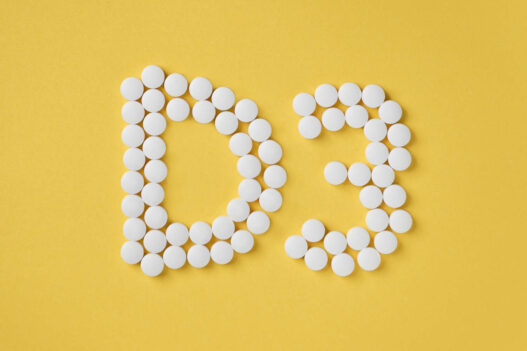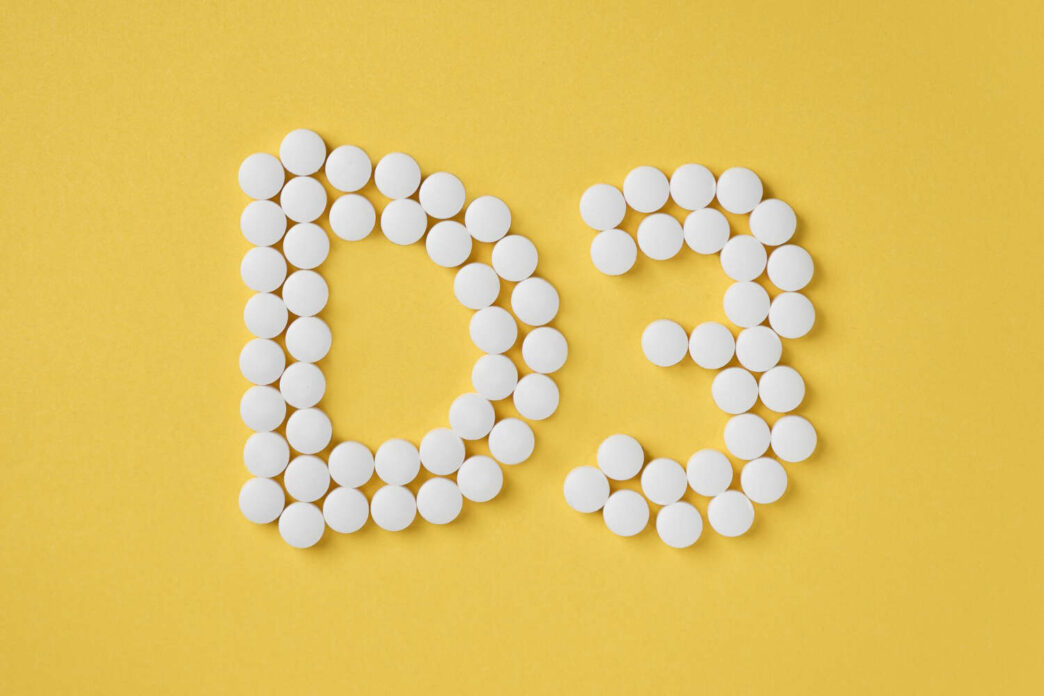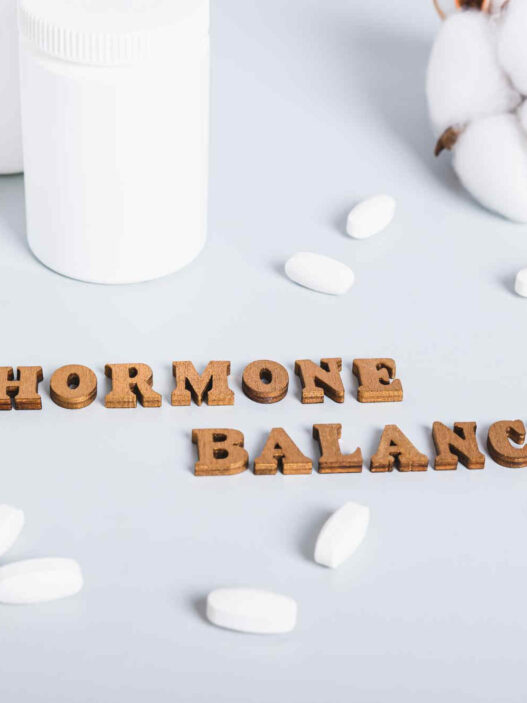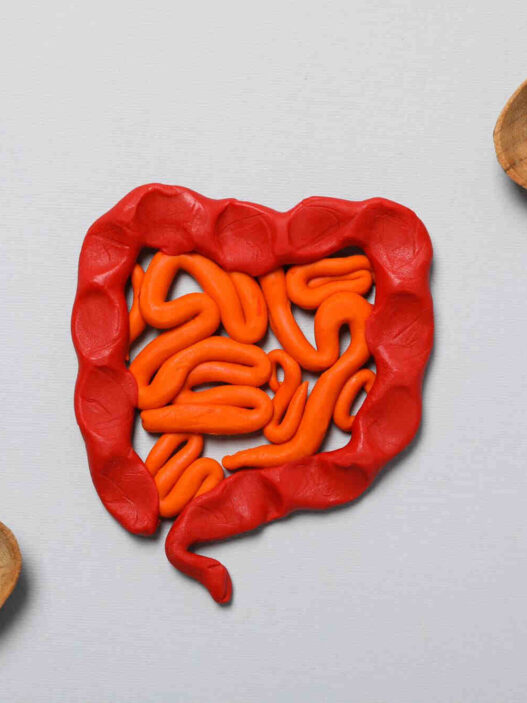Looking for a convenient way to boost your vitamin D levels? Consider liquid vitamin D as your go-to solution for better absorption. What is Nano Vitamin D3? With Nano Vitamin D3, you can potentially enjoy even greater absorption advantages compared to standard liquid formulations.
Vitamin D3, known as the “sunshine vitamin,” plays a vital role in various body functions, including a positive impact on bone health, boosting the immune system, and mood regulation, among others. While traditional supplement forms like capsules, tablets, and powders have been popular, liquid vitamin D3 is gaining popularity for its convenience and potential absorption advantages. Here we explore the benefits, absorption, dosage, and considerations of liquid vitamin D3 and why we should prefer vitamin D3 in liquid form. Also, know about Nano Vitamin D3.
Cholecalciferol – The Vitamin D3
Vitamin D3, also known as cholecalciferol, is synthesized endogenously from cholesterol in the skin using energy from UVB radiation from sunlight. After synthesis, it is hydroxylated first in the liver and then in the kidneys to its active form 1,25-dihydroxyvitamin D (1,25-OHD). The active form 1,25-OHD binds to the vitamin D receptor, which is present in several tissues (1) and therefore has widespread health benefits.
Advantages of Liquid Vitamin D3 – What sets liquid vitamin D3 apart from its solid counterparts?
Vitamin D3 in liquid form has several advantages over traditional tablet, capsule, or powder form:
Enhanced Absorption
The first and foremost advantage of using liquid Vitamin D3 is the enhancement of absorption. Liquid vitamin D offers superior absorption rates compared to its solid counterparts. Thanks to its liquid form, this essential nutrient can be absorbed more readily by the body, bypassing the need for extensive digestion. This makes it an excellent choice for individuals with digestive issues or those looking to maximize nutrient absorption.
When we take liquid vitamin D, it enters our digestive system, where it is broken down and absorbed into the bloodstream. As liquid forms are already in a dissolved state, they are absorbed more quickly than solid forms, which need to dissolve first before absorption can occur.
Another reason why liquid vitamin D3 may be better absorbed is that some liquid vitamin D supplements contain medium-chain triglycerides (MCTs) or other fats, which may enhance absorption. This is because vitamin D is a fat-soluble vitamin, and fat-soluble vitamins are better absorbed when consumed with dietary fat because they dissolve in fat rather than water.
Dosage Customization
Liquid vitamin D3 supplements allow for accurate dosage control, hence making it easier to tailor doses to individual needs.
Ease of Administration & Versatility
The liquid form of vitamin D3 makes it incredibly easy to consume, perfect for those who struggle with swallowing pills. One has to simply add it to their favorite beverage or mix it into food for a hassle-free way to get one’s daily dose of vitamin D. But convenience is not the only advantage, higher absorption is the major benefit of having liquid vitamin D3. One can easily mix liquid vitamin D3 into food or beverages, and hence it is a more versatile option. However, there may be sugary liquid, which could be a drawback.
Liquid Vitamin D3 – Consume with dietary fat for Better Absorption
As mentioned above, the major advantage of liquid vitamin D is potentially faster absorption compared to solid forms like capsules or tablets. The absorption of vitamin D3 depends on various factors, such as its formulation, individual gut health, dietary fat intake, genetics, and overall nutritional status.
While liquid forms may offer faster absorption due to their pre-dissolved state, the ultimate absorption efficiency relies on factors beyond the supplement form, such as diet, nutrition, lifestyle, and overall health and wellness.
To maximize absorption, it’s crucial to pair your vitamin D3 intake with dietary fat, given its status as a fat-soluble vitamin. In a study of 50 healthy older men and women, absorption of vitamin D-3 was greater when the supplement was taken with a meal containing fat as compared to those with a fat-free meal (2).
Contrary to the above, a study comparing vitamin D3 as a capsule vs oral spray solution administration in healthy adults for 4 weeks found no significant differences in absorption even though oral solution bypasses gastrointestinal absorption (3).
Nano Vitamin D3 and Enhanced Absorption
One particular form of liquid vitamin D3 that has gained attention is Nano Vitamin D3. Nano formulations utilize nanotechnology to create extremely small particles, which can enhance the absorption and bioavailability of the vitamin. This means that Nano Vitamin D3 may potentially offer even greater absorption advantages compared to standard liquid formulations.
Nanotechnology involves manipulating materials at the nanometer scale, typically ranging from 1 to 100 nanometers, to create structures or particles with unique properties. Nano-formulations of Vitamin D3 aim to improve the absorption of vitamin D in the body by reducing the size of the particles, which may increase their surface area and improve their solubility. This enhances the dissolution of the vitamin D particles and improves their uptake in the gastrointestinal tract.
Recent research into the efficacy and safety of nano-formulations of vitamin D3 suggests that the nano-sized particles may indeed improve absorption and bioavailability compared to conventional forms of vitamin D supplements. However, more research is needed to fully understand the long-term effects and benefits of nano vitamin D supplements.
Dosage Recommendations of Vitamin D3
Determining the appropriate dosage of liquid vitamin D3 depends on factors such as age, health status, and sun exposure. The recommended daily intake varies but commonly ranges from 600 to 2000 IU (International Units) for most adults. Hence 60,000 IU per month is generally recommended for vitamin D insufficiency or deficiency. However, individual needs may differ, and consulting with a healthcare provider is advisable to establish personalized dosage recommendations.
Vitamin D3 Levels – What should be my blood level?
Vitamin D status is assessed by measuring 25-hydroxyvitamin D (25-OHD) concentrations in serum or plasma. This is because 25-OHD is stable and has a longer half-life than the active metabolite, 1,25-OHD (1). As per the National Institute of Health (NIH), blood levels of 50 nmol/L or 20ng/ml of 25-OHD or above is adequate levels for bone and overall health (4). Levels below 30 nmol/L (12ng/ml) are too low and levels above 125 nmol/L (50 ng/ml) are too high.
Why should I maintain adequate Vitamin D3 Levels?
Vitamin D deficiency causes rickets in children and causes osteopenia, osteoporosis, and fractures in adults. There is evidence to suggest that Vitamin D deficiency is associated with an increased risk of common cancers, autoimmune diseases, multiple sclerosis, hypertension, and infectious diseases.
There are several advantages of maintaining adequate vitamin D3 levels:
Bone Health and Osteoporosis
Elderly persons and postmenopausal women are at an increased risk of developing osteoporosis, a condition where bones become weak resulting in fractures. Vitamin D and calcium help prevent the same.
Immune Booster
Research suggests that adequate levels of vitamin D3 have been associated with a reduced risk of infections and a more robust immune defense. Incorporating vitamin D3-rich foods or supplements into your diet may help bolster your immune system and support overall health.
Promotes Heart Health
Research indicates that adequate levels of vitamin D3 may contribute to heart health by helping to regulate blood pressure, reduce inflammation, and support proper heart muscle function. Low levels of vitamin D3 have been associated with an increased risk of cardiovascular diseases, including heart attacks and strokes.
Prevent Cancer-related mortality
Though clinical studies have not confirmed that vitamin D3 can prevent cancer, but evidence suggests that it reduces cancer-related mortality.
Elevate Mood
Low levels of vitamin D3 have been associated with a risk of depression. Research indicates that maintaining sufficient vitamin D3 levels through sunlight exposure, dietary intake, or supplements may help support mental well-being and alleviate symptoms of depression in some individuals. However, it’s essential to consult with a healthcare professional for personalized advice and treatment options if you’re experiencing depression or mood-related concerns.
Prevent Type 2 Diabetes
Vitamin D regulates blood glucose levels. There is mixed opinion on vitamin D3 helping prevent pre-diabetic individuals from developing diabetes, though no direct effects on HbA1c have been reported.
Promote Respiratory Health
Research indicates that vitamin D3 may play a role in reducing inflammation in the respiratory tract and supporting lung function. However, further research is needed to fully understand the mechanisms and potential benefits of vitamin D3 supplementation for respiratory health.
Considerations and Precautions
While vitamin D3 is generally safe when taken within recommended doses, excessive intake can lead to toxicity, characterized by symptoms like nausea, vomiting, muscle weakness, confusion, dehydration, excessive thirst and urination, kidney stones, and excessively high levels can even cause kidney failure and death. Excess vitamin D3 can lead to harmful high calcium levels. Therefore, one has to be careful in consuming excess vitamin D3 from dietary supplements. We cannot get excess vitamin D3 from sunlight as our skin limits the amount. It’s crucial to adhere to dosage guidelines and consult with a healthcare professional, especially if taking other supplements or medications.
Conclusion
Liquid vitamin D3 offers a convenient and potentially more absorbable form of this essential nutrient. With its numerous benefits, including bone health support, immune system reinforcement, and mood regulation, integrating liquid vitamin D3 into your supplement regimen promotes overall well-being. However, it’s essential to consume it responsibly, adhere to dosage recommendations, and seek guidance from healthcare professionals when necessary.
With liquid vitamin D3, maintaining optimal vitamin D levels has never been easier! Unlock the power of liquid vitamin D3 and embrace the sunshine vitamin for a healthier you. As always, it’s advisable to follow the recommended dosage instructions provided by healthcare professionals and supplement manufacturers and to consult with a healthcare provider if you have any concerns about absorption or vitamin D supplementation.











